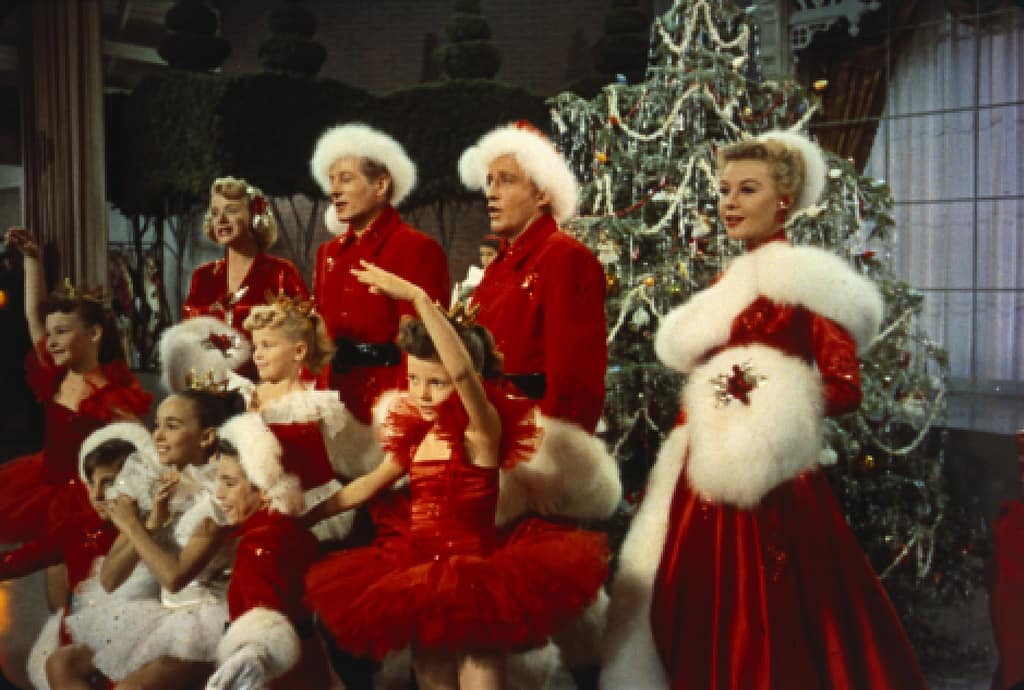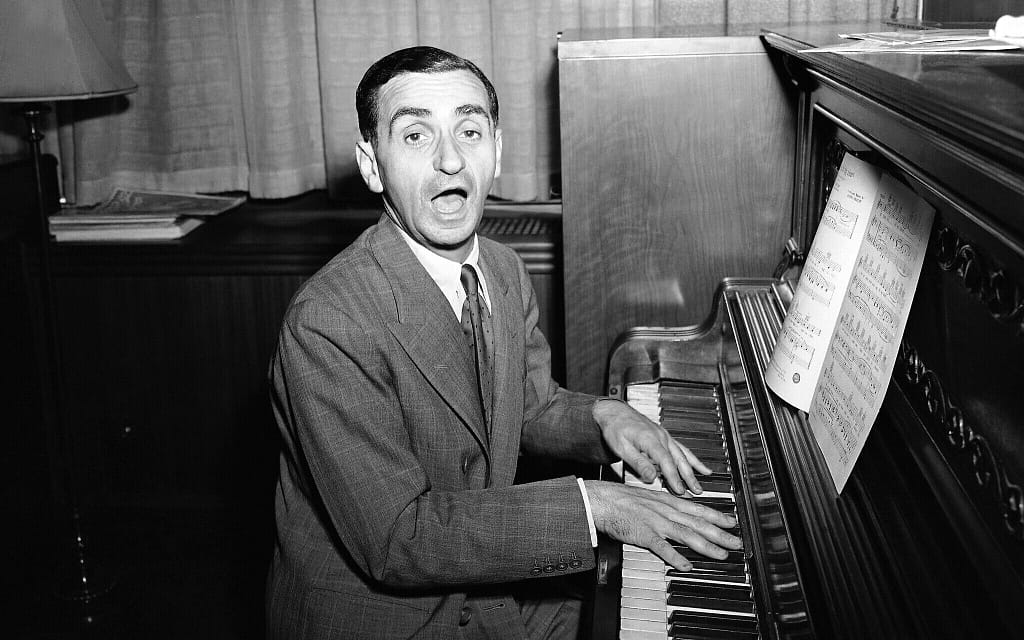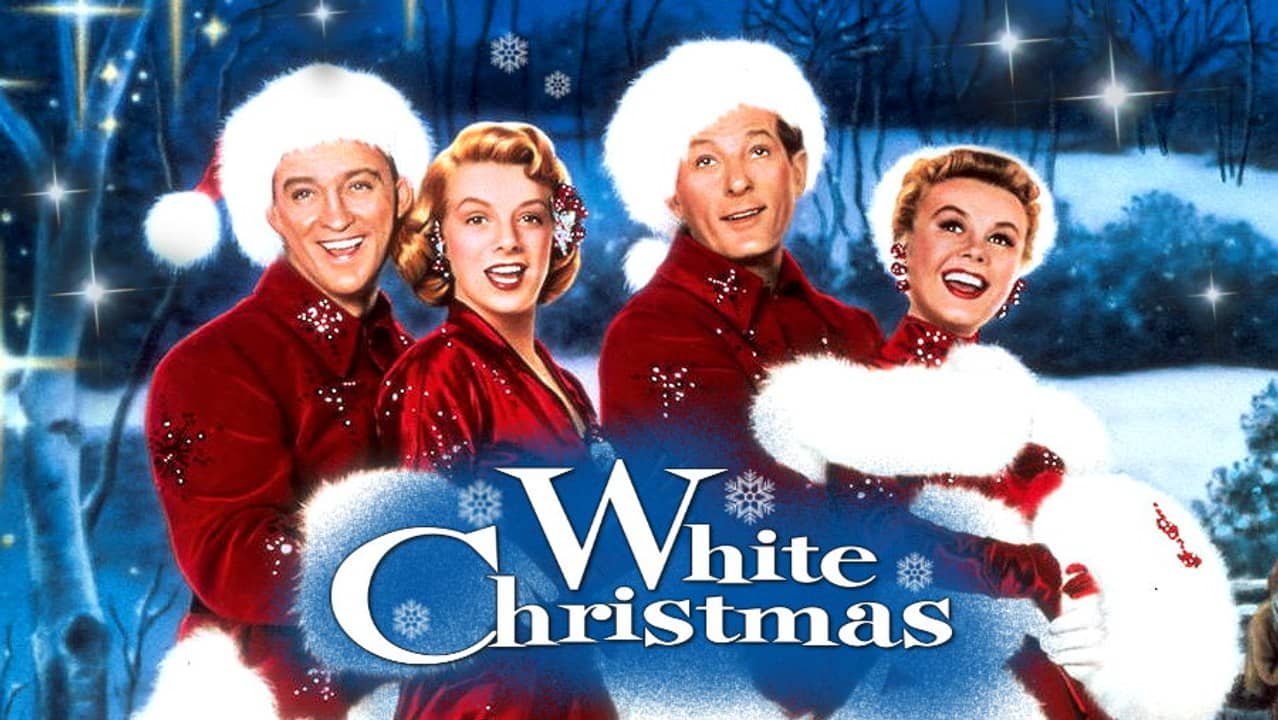Many Americans have hopes for a White Christmas – the Beauty of a Blanket of Snow Covering the Trees and Ground. And the Beauty of having Christmas Lights shine bright. Sadly, a white blanket of snow can be terrifying for some people (homeless people) who have nowhere to go on the holidays.
White Christmas – One of Bing Crosby’s Most Memorable Tunes
Perhaps no single voice signals the beginning of the Christmas season like that of Bing Crosby. By the same token, no modern secular Christmas song means as much to so many as does “White Christmas.” Many believe that Christmas just isn’t Christmas until they have heard Crosby sing “White Christmas.” In a very sincere and simple manner, this carol seems to say more with fewer words than anything ever written about holidays in America.

Bing Crosby’s Stardom
Bing Crosby was born in Tacoma, Washington, in 1901. Thirty years later Crosby, who had been working as an entertainer since he left home as a teen, landed a CBS radio contract and began recording for the Brunswick label. His first number one hit, “Out of Nowhere,” from the film Dude Ranch, initiated an unparalleled string of best-selling singles and launched a film career that spanned decades.
With record sales of more than three hundred million, Crosby remains today one of the top vocal acts of all time. When his record sales are combined with his success on radio, television and movies, it can be argued that Bing was the most important single entertainer in the history of show business.
Crosby was raised in a Christian environment and was a religious man. Not only did he know most of the familiar Christmas carols by heart, he had been singing them since his youth. In the midst of the Great Depression, Bing, by then recording for Decca, went tinto the studios determined to put a facet of his faith on wax.
Successful Bing
Singing with the Guardsmen Quartet, Crosby’s “Silent Night, Holy Night” surprised everyone, topping out at number seven on the hit parade charts. Over the course of the next few years, the single sold more than ten million copies. The Christmas hit was Bing’s seventy-ninth charting single; it became the most successful record of his early years, working its way back into the top ten again in 1938. For his fans, it was also the first concrete step in forever linking the singer to the holidays.
Crosby’s continued musical and movie successes proved a gold mine to the singer, his record label, and Paramount Pictures. This success also meant that the world’s very best songwriters were beating a path to Bing’s door. One of those who would come to pen a lot of Crosby hits was a man named Irving Berlin.
If Crosby was the nation’s premier singer, then Berlin was his composing counterpart. Other tunesmiths might have been more sophisticated or even more talented, but no one had their finger on the nation’s pulse like Berlin. He knew what Americans wanted; he sensed their dreams and their fears. And most remarkably, he was able to turn this knowledge into marvelous stories in song.

Famed Irving Berlin
Born as Israel Baline in Mohilev, Russia, Berlin spent his youth in New York City. In 1911, while working as a waiter and pitching tunes on the famed Tin Pan Alley, Irving wrote “Alexander’s Ragtime Band.” Thanks to that song, Berlin suddenly found himself, at the age of twenty-three, in the spotlight.
With talent, drive, and ambition, he stayed in the public’s eye for the next eight decades. The writer’s list of hits fills pages, but if he had only penned “Blue Skies,” “God Bless America,” and “There’s No Business Like Show Business,” he would still be remembered today as an entertainment giant. His legendary status was sealed in 1941 when he was asked to score a motion picture that starred Bing Crosby and Fred Astaire.
The Holiday Inn Film
The film, Holiday Inn, was typical of Hollywood musical formula-a hero wanting to live a dream faces failure time and time again, and while searching for success, he falls in and out of love. The plot had been used on countless occasions in movies and Broadway, but this film’s hook was unique in that the musical score and story line tied it to the holidays.
Facing the task of writing about the day Americans loved to celebrate, Berlin’s genius became evident again. He drew on his own experience and observations, a formula that seemed to work for him every time. As always, he composed easy-to-remember lyrics and melodies that went straight to the heart. Yet he was having a problem with one song in the movie; as a Jew, writing something for Christmas demanded insight he didn’t feel he had. But Berlin didn’t beg off or turn the job over to someone else. With marked determination, he continued to toil over his assignment.
As Berlin worked on his Christmas song, he considered what he did know of the holidays. As a New Yorker, when he thought of the season, he pictured snow and Santa. Yet as he spent many holiday seasons working in Los Angeles, he was well aware that for many, what made the atmosphere of Christmas special was more of a nostalgic dream than a reality; across America, everyone wanted that perfect white day when “treetops glisten” and children anxiously await Santa’s arrival.
Everyone knew that the only Southern California location where it was ever going to snow was on a Hollywood sound stage. Using this premise as an anchor, he wrote what was to become the pivotal song for Holiday Inn – the song that would make the movie a classic.
When he finished his work, Berlin was not sold on the effort; he even thought about tearing the piece up and starting over. But before he did, the disappointed writer took the time to sing it to Crosby. Bing loved it and convinced Berlin not to change anything about the tune he called “White Christmas.”
Crosby first sang the song on his December 25, 1941 radio show. Perhaps because it was a sober Christmas, just three weeks after the United States had been forced to enter World War 2, the performance generated instant response. Bing recorded it six months later. Just after Holiday Inn hit theaters in late summer, Deca released Crosby’s “White Christmas” as a single.
Driven by both the movie and family separations caused by the war – thousands of soldiers were far from home, longing for the familiar sights and sounds of the holidays- the song topped the charts for twelve weeks. The tune about which Irving Berlin had such misgivings would go on to win the Academy Award for best song of 1942.
Over the course of the next twenty years, Bing Crosby’s “White Christmas” landed on the charts fifteen more times. It hit number one again in 1945 and 1946. Crosby’s version eventually sold more than thirty million records and spawned a successful motion picture of the same name. The song’s incredible sales alone indicate that of all the modern Christmas songs.

“White Christmas” simply and eloquently best voices the Christmas dreams and wishes of most Americans. The song scores because, no matter where we are, we want to see snow on Christmas Day. For a few hours, we want our Christmas to look like a greeting card. The chord Berlin somehow struck and Crosby’s voice echoed captures the childlike longings in every person who truly loves the holidays and the spirit that makes them special.
Bing Crosby died in 1977. Just before his death, he filmed a television special that was to air during the Christmas season. With his family around him, the man whose voice had for so long signified the beginning of the holidays sang “White Christmas” for the lst time. There could not have been a better way for the singer-who charted more than 350 times-to say farewell. As long as children press their faces to the window looking for Santa, families make plans to get together for holiday dinners, and folks dream of snow on Christmas day, there will always be a place for Bing Crosby’s “White Christmas.”


